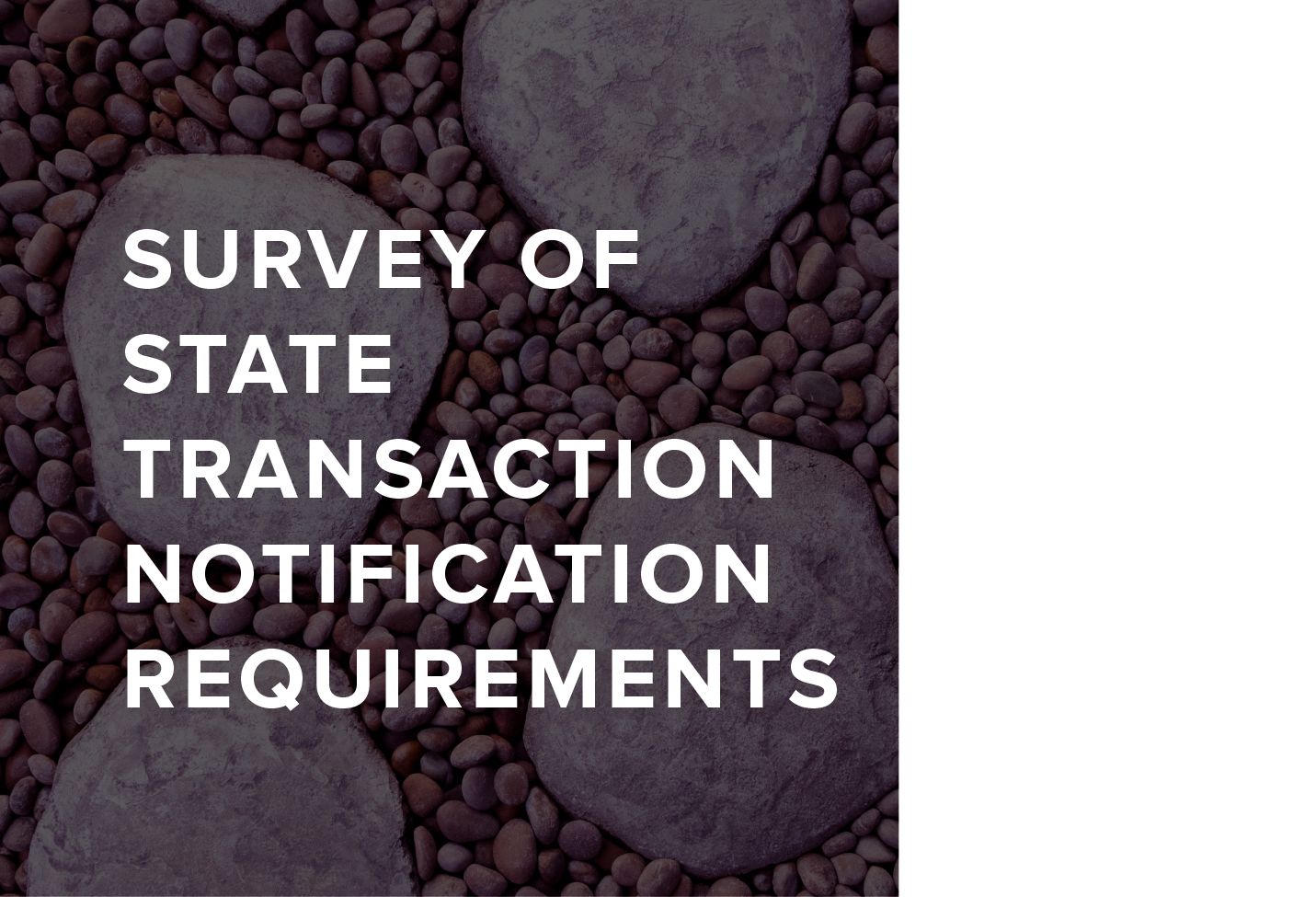Competition Corner
Sort by:
20 results
November 27, 2024
|6 min read
Antitrust Compliance 2.0: Insights from the DOJ’s Updated Guidance
On November 12, 2024, the Antitrust Division of the U.S. Department of Justice (DOJ) issued updated guidance for evaluating corporate compliance programs in criminal antitrust investigations. Although primarily directed at criminal prosecutors, the 2024 guidance also expressly indicates that companies should expect the civil team to use many of the same factors to evaluate the effectiveness of compliance programs for purposes of civil antitrust violations.
August 16, 2024
|2 min read
FTC and DOJ Host First Public Meeting of Pricing “Strike Force”
On July 31, 2024, the Department of Justice (DOJ) and the Federal Trade Commission (FTC) jointly hosted the first public meeting of the “Strike Force on Unfair and Illegal Pricing.” This initiative was launched by President Biden in March 2024 where he emphasized the readiness of the DOJ and FTC to enforce the law in response to “illegal pricing practices that are fraudulent or unfair or deceptive or anticompetitive.”
June 14, 2023
Don’t Nickle and Dime Compliance: Antitrust and Consumer Protection Risks in Finance
Our latest episode, “Don’t Nickle and Dime Compliance: Antitrust and Consumer Protection Risks in Finance,” features Antitrust Practice Co-Chair Eva Cole and Partner Dana Cook-Milligan chat about enforcement and litigation risks in the financial services sectors. They explore best practices that firms should follow in the wake of volatility and uncertainty in the banking sector.
May 22, 2023
|5 min read
Algorithmic Pricing: A Recipe for Antitrust Disaster?
In the age of big data and artificial intelligence, businesses are increasingly using algorithms to make important business decisions. This trend raises antitrust concerns that companies need to be aware of.
April 18, 2023
|5 min read
Consumer Data Monetization: The Antitrust Risks You Need to Know
The collection, monetization, analysis, and use of consumer data have become ubiquitous aspects of modern business in the digital age. Companies, big and small, rely on consumer data to develop targeted advertising campaigns, enhance customer experiences, and create innovative products and services. However, the increasing reliance on consumer data also presents significant and growing antitrust risks for companies operating in the digital sphere.
August 5, 2022
|7 min read
Antitrust 101: “Most Favored Nation” Clauses
“Most Favored Nation” provisions have increasingly drawn the attention of both government enforcement agencies and the business community. Notably, recent litigation involving the use of MFN provisions by Valve Corporation in connection with its popular PC-gaming platform, Steam, has spotlighted this increased government scrutiny. Additionally, a number of lawsuits targeting the use of MFN provisions by technology giants like Amazon and Apple indicate that the government is taking a closer look at the use of these provisions. While most businesses have nothing to fear from contracts containing MFN provisions, companies should be aware that there are certain circumstances that may give rise to antitrust scrutiny.
November 24, 2021
|5 min read
The Impact of DOJ’s Corporate Enforcement Policy Changes on Antitrust Investigations
As discussed in a prior briefing, Deputy Attorney General (DAG) Lisa Monaco recently announced that the Department of Justice (DOJ) has adopted major changes to its policies regarding corporate criminal investigations and resolutions.
September 8, 2021
|6 min read
Antitrust 101: Best Practices for an Effective Antitrust Compliance Program
There has recently been a heightened focus on antitrust enforcement as the Biden administration has signaled its intent to vigorously enforce the antitrust laws, including through its appointment of Lina Khan to the Federal Trade Commission and its proposed increases in the budgets of the FTC and Antitrust Division.
July 27, 2021
|9 min read
Protection of Confidential Attorney Communications in Hard-Core Cartel Investigations in Japan
On December 25, 2020, the Japan Fair Trade Commission (JFTC) implemented new procedures to protect confidential communications between an enterprise and its attorney from disclosure in administrative investigations of hard-core cartels. While this may appear to be the adoption of an attorney-client privilege in Japan, the newly announced protection is notably different from the privilege in the United States in several respects.
March 26, 2021
|5 min read
A Reminder to Trade Associations to Tread Carefully
A federal judge recently dismissed a complaint by two reporters alleging, among other things, that the Hollywood Foreign Press Association (HFPA)—the trade association responsible for the Golden Globe Awards—had illegally denied them membership and its associated benefits, i.e., access to celebrities.
February 2, 2021
Episode 10: Pandemic Price Gouging
In this episode of Winston & Strawn’s Competition Corner Podcast, Attorneys Molly Donovan and Jeff Amato discuss the general legal framework of price-gouging prohibitions that have been triggered by the ongoing crisis. They provide best practice tips for companies to minimize liability including legitimate justifications for increasing prices during an emergency.
January 29, 2021
|3 min read
DOJ Antitrust Division Still Looking for a “Gold Standard” Compliance Program
In recent remarks, Deputy Assistant Attorney General Richard Powers revealed that the DOJ Antitrust Division has yet to find a corporate defendant whose compliance program fits the Division’s “gold standard.”
June 9, 2020
|2 min read
The Antitrust/Price-Gouging Intersection in the COVID-19 Era
While the antitrust laws have long protected a merchant’s freedom to charge a price as high as the market will bear so long as it is set unilaterally, price-gouging laws curtail that freedom when a state of emergency has been declared. At both the state and federal level, COVID-19 has given rise to a substantial new focus on pricing practices in an effort to combat price gouging on a broad range of products, including essential supplies like hand sanitizer, food products, and personal protective equipment.
June 8, 2020
|3 min read
Key Changes to Japan’s Whistleblower Protection Act Require Stronger Compliance
Since its enactment in 2004, Japan’s Whistleblower Protection Act has been criticized for being “toothless” and unable to adequately protect whistleblowers. On June 8, 2020, a long-awaited amendment was finally passed, providing greater legal protection for whistleblowers and strengthening corporate compliance requirements. The Whistleblower Protection Act applies to some antitrust violations (such as cartel and monopolization conducts) as well as other corporate misconduct that is subject to criminal punishment.
June 4, 2020
|1 min read
Additional Guidance from the DOJ on Corporate Compliance Programs
On June 1, 2020, the Criminal Division of the Department of Justice released an updated version of its Evaluation of Corporate Compliance Programs (2020 Guidance). The DOJ’s guidance sets for questions that prosecutors ask when evaluating corporate compliance programs in connection with criminal investigations.
May 5, 2020
|3 min read
Japan Proposes New “Privilege-Like” Rules for Attorney-Client Communications in Competition Matters
Following the recent overhaul of Japan’s leniency program, the Japan Fair Trade Commission has now released a set of proposed rules and guidelines changing the way confidential communications between attorneys and clients are treated – now providing some “privilege-like” protections, similar to the attorney-client privilege in the U.S., to companies under investigation for conduct that falls within the purview of Japan’s leniency system.
April 6, 2020
|4 min read
UK Guidance on Business Cooperation During the COVID-19 Pandemic
In the face of the challenges brought by the COVID-19 pandemic, many businesses are questioning whether they are able to collaborate with competitors in ways that, under normal conditions, might risk violating prohibitions on anti-competitive behaviour.
March 12, 2020
Episode 5: Beware of Corona Cartels!
How does the coronavirus (COVID-19) crisis increase antitrust risk? In this episode of Winston & Strawn’s Competition Corner Podcast, Partner Eva Cole discuss the challenges companies are facing as the virus impacts supply chains, and the steps they should take to mitigate their antitrust risk.
March 5, 2020
|1 min read
There Is No Corona Defense for Cartels
In-house compliance teams should be on alert as the coronavirus (COVID-19) continues to spread. It is often during times of perceived crises or disasters that competitors end up discussing subjects that can be risky from an antitrust perspective (e.g., procurement costs and selling prices).
December 23, 2019
|6 min read
Courts Unwilling to Condemn Franchise No-Poach Provisions Under the Per Se Rule
More courts are declining to apply the per se rule to so-called “no-poach” or “no-hire” arrangements, at least at the pleading stage. In the franchise context, the recent decision involving Jiffy Lube in Fuentes v. Royal Dutch Shell PLC, is the latest data point.






